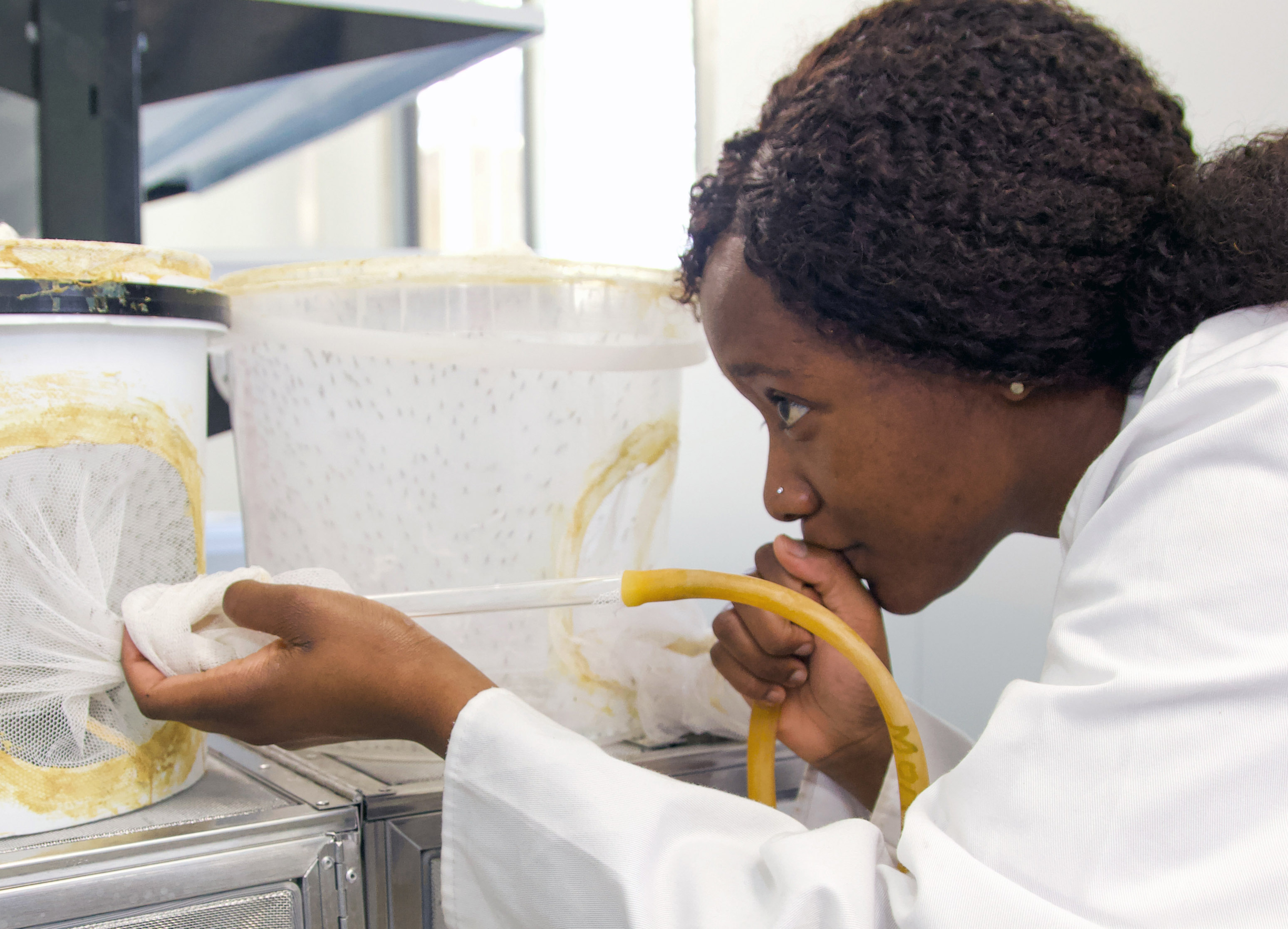
2 minute read
Ending Malaria: Africa University’s Zimbabwe Entomological Support Program
In 2016, Africa University’s then Dean of the College of Health, Agriculture and Natural Sciences Professor Sungano Mharakurwa dreamed of finally eradicating malaria from Africa.
Manicaland, where Africa University is situated, was experiencing a surge of the disease. In 2022, the World Health Organization reported nearly 94% of malaria cases and 95% of malaria deaths occurred in Africa.*
Africa University is deeply thankful for the extravagant generosity of local congregations. Thank you for living out a mindset of abundance and shared mission. To the 16 conferences that achieved a 100% investment in the AUF in 2023, thank you for your faithfulness in sharing your blessings so that lives and communities are transformed.
With funding from the U.S. President’s Malaria Initiative, a US government initiative for diminishing malaria deaths, and USAID, a malaria reference insectary unit opened at AU, a first of its kind at any higher education institution in Zimbabwe.
Seven years later, the operation is a major hub for mosquito research, feeding into the Zimbabwe Government’s Ministry of Health and Childcare’s National Malaria Control Program, collecting and breeding mosquitoes for malaria research.
AU’s Zimbabwe Entomological Support (AU/
ZENTO), reached another milestone in August 2023, becoming the first private institution in Zimbabwe to enter its data into the global District Health Information System. This invaluable knowledge hub trains, educates and contributes to the global discourse on malaria, and has already received 10 international awards on the strength of scientific merit.
Today Mharakurwa, Chief of Party of AU/ZENTO, said, “On the strength of our program delivery, we have recently been further supported to expand our technical and geographic scope to now include regular entomological surveillance and systematic vector insecticide resistance monitoring in Manicaland and Mashonaland East provinces.” He remains hopeful that his and the team’s work not only mitigates the impacts of malaria in Zimbabwe and beyond, but leads to the realization of the ultimate goal—eradication.
*Source: www.who.int/news-room/fact-sheets/detail/malaria





